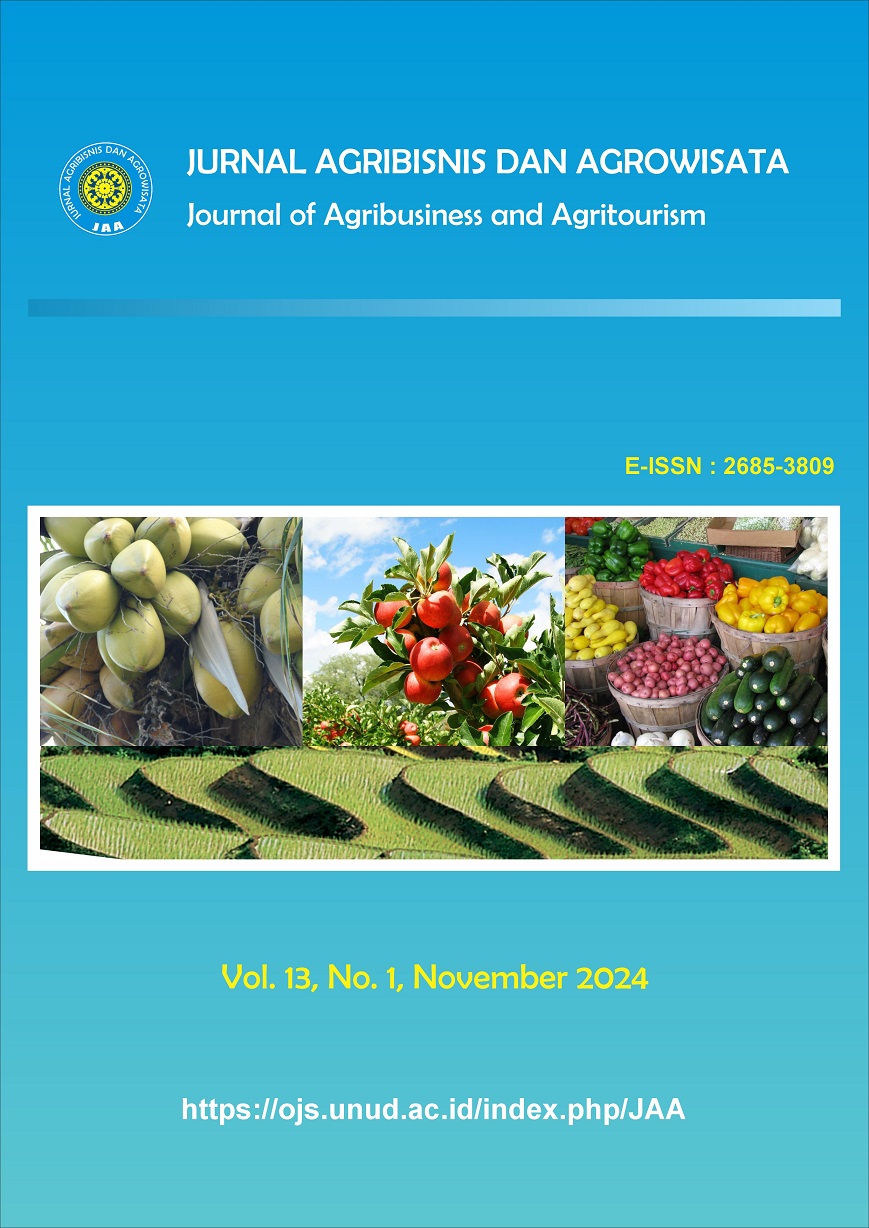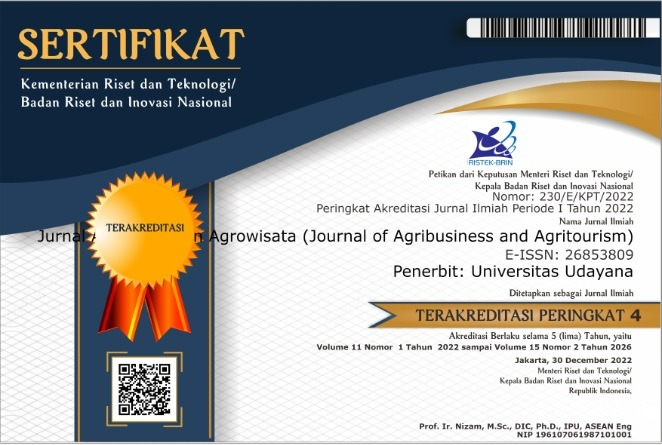Dampak Pandemi Covid-19 terhadap Profil Ekowisata Subak Sembung di Kecamatan Denpasar Utara Kota Denpasar
Abstract
The Impact of the Covid-19 Pandemic on the Ecotourism Profile of Subak Sembung in North Denpasar District, Denpasar City. Subak Sembung Ecotourism is one of the new environmental-based tourist attractions in the center of Denpasar City. Various activities carried out at Subak Sembung Ecotourism such as agricultural activities, educational activities, tourism activities to sports activities such as jogging. The Covid-19 pandemic situation has triggered a decline in visitors so it has had a huge impact on Subak Sembung Ecotourism. The purpose of this study was to determine the ecotourism profile of Subak Sembung and the changes that have occurred to the Ecotourism profile of Subak Sembung as a result of the Covid-19 pandemic. The method of data analysis in this study uses descriptive qualitative analysis and by using triangulation techniques. The results of the study show that the aspects contained in the Ecotourism profile of Subak Sembung such as infrastructure, facilities, activities or activities within Subak, both agricultural activities and tourism activities that support the development of Subak, are good and able to survive to date but still experience slight changes over time. During the Covid-19 pandemic, not much changed in Subak Sembung Ecotourism. The Covid-19 pandemic has had an impact on subak income because subak income has come from parking fees and voluntary money from groups or schools that carry out outing activities in Subak Sembung. During the Covid-19 pandemic, the Subak Sembung Ecotourism was temporarily closed except for agricultural activities, farmers still came to the fields to farm. The temporary closure prevented Subak Sembung from receiving any income because there were no visitors.
Downloads
References
Arikunto, S., 2010. Prosedur Penelitian: Suatu Pengantar Praktik, Jakarta: Rineka Cipta.
Dinas Kebudayaan Propinsi Bali. 1995. Subak dan Museum Subak di Bali. Proyek Pemantapan Lembaga Adat Tersebar di 9 Dati II TA 1995/1996.
Pitana, I Gde. 2005. Subak dalam Pertalian antara Pertanian dan Pariwisata dalam Pitana, I Gde dan I Gede Setiawan AP (Editor). 2005. Revitalisasi Subak dalam Memasuki Era Globalisasi.Yogyakarta: Penerbit Andi
Subak Sembung. 2014. Eka Ilikita Subak Sembung Desa Peguyangan. Tidak diterbitkan: Denpasar.
Sugiyono. 2011. Metode Penelitian Kuantitatif, Kualitatif dan R&D. Bandung Alfabeta
Sugiyono. (2012). Metode Penelitian Kuantitatif, Kualitatif, dan R&D. Bandung: Alfabeta.
Sugiyono. 2016. Metode Penelitian Kuantitatif, Kualitatif dan R&D. Bandung: PT Alfabeta.
Sugiyono. 2017. Metode Penelitian Kuantitatif, Kualitatif, dan R&D. Bandung : Alfabeta, CV.
Winartha, I. M. (2006). Metode Penelitian Sosial Ekonomi. Yogyakarta: Andi Offset







